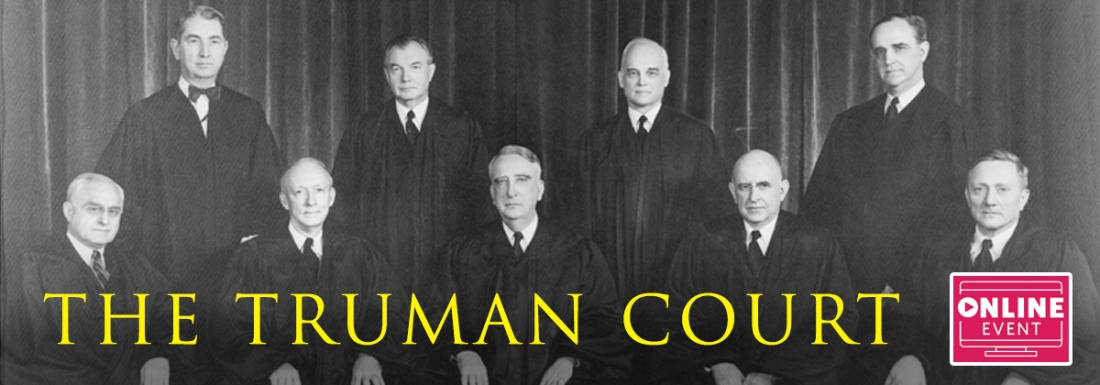All Library locations will open late Friday, February 27 at 11 a.m. due to an all staff meeting.
Today’s hyper-political sensitivity to U.S. Supreme Court appointments traces back to the only president elected from Missouri. Harry Truman revolutionized the relationship between the presidency and the high court, using his nominating power as a tool for advancing his political agenda when constitutional or congressional options weren’t available.
Attorney and author Rawn James Jr. explores this precedent-setting strategy – perhaps the most overlooked facet of Truman’s eight years in the White House – in a discussion of his book The Truman Court: Law and the Limits of Loyalty, scheduled for release in early June. The online Library event follows the state of Missouri’s observance of Truman Day on May 7.
During his tenure as president, Truman was able to nominate three associate justices and a chief justice, Fred Vinson. Two of them had served in his administration. The other two had worked closely with him when he was a senator. They helped form a formidable bloc on the court and uphold some of the president’s most contentious policies, including actions to restrict free speech, expand civil rights, and manage labor union unrest. So reliable was their support that they were referred to as “the four Trumanites.”
The effects have reverberated in nearly every presidential election and Supreme Court nomination since then.
James is a former assistant attorney general for the District of Columbia, where he has practiced law for 20 years. He is the author of three other books including The Double V: How Wars, Protest and Harry Truman Desegregated America's Military.
